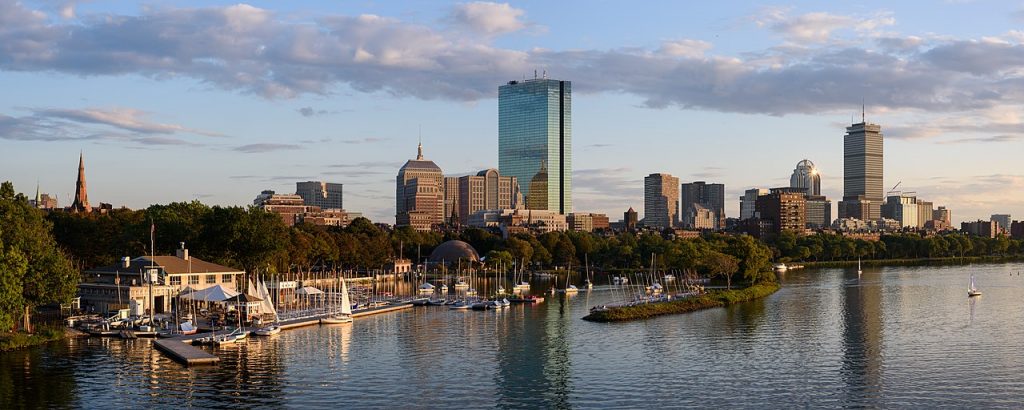Real estate is a great area to invest your cash in, and Boston, MA is a decent investment market.

If you aren’t familiar with real estate investing yet, I would recommend our article on real estate investing across the USA here — because 80% of all real estate investing is the same, and this includes Boston as well.
What’s Special about Boston?
If you’re already familiar with real estate investing, then Boston is a pretty standard, middle-of-the-pack growing large city: the Boston metro area has a population of over 6 million people, which is bigger than most cities in Europe. The median home value is $600k, which isn’t too far from the national average. The national average is $320k.
Boston also has a fairly good university system, with Harvard being one of the top schools in the world (and ranked #1 by U.S News & World Report).
In terms of quality of life, Boston is generally considered to be a very safe place to live. Crime rates are lower than the national average, and the city has an overall livability score of 7 out of 10.
As for rents, they’re relatively cheap compared to other big cities in America (especially if you want a house or condo). You could probably buy a nice house in not-too-ritzy areas of Boston for around $400k.
Boston’s one special trait as a housing market is the massive number of college and university students. These students don’t all live on campus, either because some colleges house undergrads off campus, or they are graduate students (as most grad students find their own housing). This means that there is an enormous flow of students entering and exiting the Boston ecosystem yearly. These students are ready to rent the houses you would invest in.
However, there is a dark side to Boston’s student population. Because so many students rent houses, some of them are not the best at taking care of their living spaces. Undergrads especially could cause a future landlord like you anxiety, so some landlords screen out undergrads. Other landlords require a larger deposit for students. It’s a balancing act of whether you want to cater to these students or not.
On the other side, Boston is fairly restrictive on new construction, so it’s unlikely that competition from new properties will drive down the price of your property. Yet the city is actually quite progressive in allowing some construction, which means that your investments won’t grow to the moon in price. Unlike San Francisco, the number of permits being issued for new builds is not small, and in the long run, this does put a clear upper bound on housing prices.
In the long term (10-100 years), Boston is a city that keeps on innovating. It used to be textiles, then shoes, then electronics, and now medicine. Boston isn’t a one trick pony, unlike Detroit. And unlike Detroit, it’s unlikely to experience any precipitous fall in housing prices.
Other Considerations for Boston Investing
Some other considerations for investing in residential real estate include:
- Although the city of Boston is fairly restrictive on new construction, it’s actually pretty lax on allowing you to improve your property. You can easily add a new deck, or build a small shed in the yard. You can also do small things like remodel your kitchen or bathroom.
- Although home prices are high, the cost of living is not too bad. This is largely due to the large student population that drives down the cost of food and services.
- Massachusetts has a pretty fair income tax and property tax: they’re not too high, yet not the lowest in the country.
- If you’re looking for higher yields, you could look into buying a multi-family dwelling (a duplex, triplex, etc). These types of properties provide lots of income, but also come with larger management headaches (i.e. making the common areas are well-maintained).
- One of the best ways to make money in real estate is to buy properties that are “under-managed”. In other words, the owners of these properties are absentee landlords who do not take care of their property. They might be motivated to sell their property at a discount, and you can step in to renovate and manage the property. This is a common strategy in Boston because it’s a high-cost area and improvements to your property will be well-rewarded in higher rent or resale value.
- You can also consider buying a “turn-key” property, which are properties that come with tenants already in place. This means you can move into the profits right away, but you might not be able to raise the rent as much as you would like.
- Last, you can consider buying a property to “flip”. This means you buy a property, renovate it, and quickly sell it for a profit. This is riskier than the other options because you need to be able to find a buyer quickly, and your renovation costs can go over-budget if you’re not careful.